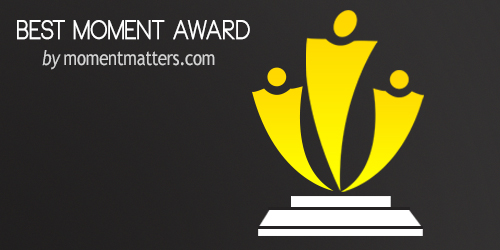Blog Archives
Impressions of Ethiopia – women, economy & climate change
I am on a month long work-exchange in Ethiopia, working with the Food Security team here at the Dutch Embassy in Addis Ababa.
I don’t know what I expected to be very honest but if I had any expectation, Ethiopia has certainly exceeded all of them. My first impression of Addis Ababa was that it’s huge!!! It’s a big city, spread out in what appears to be a valley or several valleys connected together. But with a population of 4 to 5 million, for a Bangladeshi like me, it’s very sparsely populated 🙂
The roads are busy but there’s none of the incessant honking that drives people crazy in Dhaka traffic. And I find that it’s pretty representative of the people here ….. Ethiopian’s are quiet, reserved people, very dignified & proud in their heritage (and absolutely rightly so). Unfailingly cordial and extremely polite, unlike the Bangalis they keep their nose out of other people’s business. One foot in the past – a long glorious heritage, yet one planted firmly towards the future – in progress for everyone. Though deeply religious, women here do enjoy a different kind of freedom.
What that freedom means on a day to day basis is that it’s absolutely possible to have peace & quiet in the middle of a crowd. You can sit quietly in a cafe and enjoy the view without being gawked at, commented at or imposed on in any manner. You can walk down the busy roads without people bumping into you every few feet. And as a woman I feel more comfortable & safer here then in my own country. Ethiopians also have more women parliamentarians then Bangladesh & the labour force participation is significantly higher.
Before I came, I read up on Ethiopia and was impressed by the fact that this country has never been colonised. I expected this to mean something, but exactly what, I couldn’t have said. Now that I am here, I do see the difference between a population colonised vs. a population who were always the master of their own destiny. Even though Ethiopians are very polite, you can tell that the color of one’s skin doesn’t impress here. In former colonies there’s a tendency to idolise white skin people, to give more attention, to try to impress, to cater to, we have not gotten over the ‘white master’ syndrome. If a native person makes a suggestion or give advice, we might shake it off BUT if a white person makes the same, people trip over each other trying to be the first ones to take it. It’s frustrating because it sidelines the suggestion & advice of people who know their country best AND has its best interest at heart. Here, the Ethiopians are very nationalistic & while they are open to advice, they also make it a point to accept suggestions on their own terms, in their own time. Sure it slows things down but it also means that local ownership is high. Which after all is more important in order for development activities to be sustainable.
The previous Prime Minister made a very public declaration that Ethiopia will pursue a climate resilient green economy. A tall order but a very commendable one. While the understanding of climate change, its negative impact on environment & stress on the livelihood of the population varies among various professional, the attention though continues to impress me. As the Native Americans say “we do not inherit the earth from our ancestors, we borrow it from our children”. In our pursuit for economic growth we tend to compromise on that, and perhaps some compromise is inevitable, a trade-off if you will, at least here the choices are being looked at & deliberated on more vigorously.
IMF ranks Ethiopia among the five fastest growing economies in the world and in 2013/2014 the economy grew for its 11th consecutive year posting 10.3% growth. Quite impressive for a non-oil producing economy. However it is still far from its ambition to become a middle income country by 2025. With around 29% of its population living below the poverty line there is much work that still needs to be done. And the government seems to be on the right track with a stable political environment, progressive economic liberalisation and high focus on green & equitable growth.
Quite an impression for the very first week in a new country 🙂 I can hardly wait to see how much more there will be learn over the upcoming days.
Why should we reduce wastage of food?
Between 30% and 50% or 1.2-2bn tonnes of food produced around the world never makes it on to a plate. Photograph: Murdo MacLeod for the Guardian Murdo MacLeod
Yesterday, June 5th was the World Environment Day. Did you know???
- Roughly one third of the food produced in the world for human consumption every year — approximately 1.3 billion tonnes — gets lost or wasted.
- Every year, consumers in rich countries waste almost as much food (222 million tonnes) as the entire net food production of sub-Saharan Africa (230 million tonnes).
- The amount of food lost or wasted every year is equivalent to more than half of the world’s annual cereals crop (2.3 billion tonnes in 2009/2010).
- Food loss and waste also amount to a major squandering of resources, including water, land, energy, labour and capital and needlessly produce greenhouse gas emissions, contributing to global warming and climate change.
- In developing countries food waste and losses occur mainly at early stages of the food value chain and can be traced back to financial, managerial and technical constraints in harvesting techniques as well as storage –and cooling facilities. Thus, a strengthening of the supply chain through the support farmers and investments in infrastructure, transportation, as well as in an expansion of the food –and packaging industry could help to reduce the amount of food loss and waste.
- In medium- and high-income countries food is wasted and lost mainly at later stages in the supply chain. Differing from the situation in developing countries, the behavior of consumers plays a huge part in industrialized countries. Moreover, the study identified a lacking coordination between actors in the supply chain as a contributing factor. Farmer-buyer agreements can be helpful to increase the level of coordination. Additionally, raising awareness among industries, retailers and consumers as well as finding beneficial use for save food that is presently thrown away are useful measures to decrease the amount of losses and waste.
- In the United States 30% of all food, worth US$48.3 billion (€32.5 billion), is thrown away each year. It is estimated that about half of the water used to produce this food also goes to waste, since agriculture is the largest human use of water. (Jones, 2004 cited in Lundqvist et al., 2008)
- United Kingdom households waste an estimated 6.7 million tonnes of food every year, around one third of the 21.7 million tonnes purchased. This means that approximately 32% of all food purchased per year is not eaten. Most of this (5.9 million tonnes or 88%) is currently collected by local authorities. Most of the food waste (4.1 million tonnes or 61%) is avoidable and could have been eaten had it been better managed (WRAP, 2008; Knight and Davis, 2007).
- In the USA, organic waste is the second highest component of landfills, which are the largest source of methane emissions. Methane is 23 times more potent than CO2 as a greenhouse gas. The vast amount of food going to landfills makes a significant contribution to global warming.
While we worry about feeding 9 billion people by 2050, perhaps our greatest concern and investment right now should be on ways to reduce wastage. Increasing investment in better transportation, storage and improving awareness & incentive’s for better buying behavior by both wholesalers and retail consumers could have significant impact on improving our environment now and for the one we leave for our future generation.
You can learn more about food waste and interesting statistics in the links below:
http://www.fao.org/news/story/en/item/196402/icode/
http://www.theguardian.com/environment/2013/jan/10/half-world-food-waste
What is courage?
Courage is the little voice that says at the end of the day, I will try again tomorrow
This is what courage is for me. Not the absence of fear, but to be able to move forward, despite the fear. To fall nine times and to get up for the tenth time, that’s courage. And this is what I saw in the farmers that we visited last week during my field trip to the North West of Bangladesh. It takes an enormous amount of courage to incur recurrent losses in crop and to still go on plowing and harvesting, hoping that this year will be different.
One of the project that we visited has organized these farmers into groups. They have been taught some business skills, production scheduling, when to plant, what to plant, how many farmers will plant a particular crop. By scheduling who produces what and when, they now have better control over the procurement of their inputs, e.g. seeds, fertilizer, pesticide. By scheduling how many farmers will plant a particular kind of crop (usually horticultural item i.e. vegetable) and by spacing out harvest times, they have learnt to avoid the pitfall of flooding local markets with a lot of produce all at the same time. By developing market linkages both for inputs and outputs, they now have better price control over both their buying and selling.
Another group of farmers have gotten together and developed Collection Point. Thus enabling the villagers all around to bring their produce at the same place. The aggregation of produce has brought in more buyers and thus ultimately better prices for each individual farmer who uses the collection point.
Most of these farmers have been trained in the use of organic fertilizer and natural pesticide. According to most of the farmers we spoke to, their costs reduced and their production increased. They were rather vocal about the fact that this year they have not made a loss in selling their harvests due to a combination of factors like production scheduling, better market linkage, reducing costs etc. At this rate apparently most of them calculate that they will be able to get out of debt in another 2-3 years and that is very encouraging news.
In the faces of these farmers, I see courage. It is farmers like them who are keeping city folks like me fed. Their toil, their sweat, their hard work is what keeps the wheels running. To be able to do something for them, to help them get to the next level, the next improvement, the latest technological innovation in agriculture – to be able to give something back by working with them, for them, it’s an honor. It’s an honor and a challenge that I look forward to for the upcoming years.
I know I had disappeared for the past ten days or so, but this trip and its subsequent follow-ups took up a lot of my time and I don’t want to let my heroes down 🙂
Related articles
- Farmer Crop-Diversity Hurdles Include Lack of Variety, INRA Says – Bloomberg (bloomberg.com)
- A herbal remedy for the ‘bug crisis’ (timesofisrael.com)
- Hope’s Partners – Courage (hope4usnow.wordpress.com)










